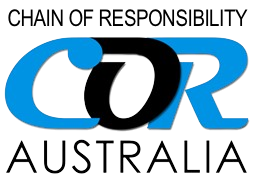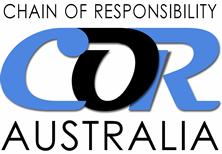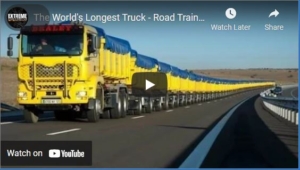
Examples of Enforceable Undertakings Under CoR Law

For companies that either provide, or engage other companies to provide heavy vehicle transport in Australia, an alleged breach of the Heavy Vehicle National Law (HVNL) and Chain of Responsibility (CoR) can be a daunting prospect. Many businesses may feel they have limited options when facing potential prosecution and penalties.
However, in certain cases, proposing an Enforceable Undertaking (EU) to the National Heavy Vehicle Regulator (NHVR) can provide an alternative path that avoids legal proceedings while still delivering improved safety outcomes.
Rather than punishment, an EU focuses on putting tangible measures in place to enhance safety systems, practices, and awareness across the offender’s business and often the wider industry.
Pursuing an EU isn’t necessarily an easy way out though. The undertakings require a significant investment of time, effort and resources by the offender to implement the proposed initiatives. However, for companies willing to learn from their mistakes and improve, an EU can be an opportunity to emerge as a safety leader and contribute to uplifting heavy vehicle transport standards.
Let’s examine some recent examples of EUs accepted by the NHVR and the types of activities involved.
What Is an Enforceable Undertaking?
To begin, we need to clarify what an EU is under the HVNL. An EU is defined as a written undertaking proposed by a person or legal entity as an alternative to prosecution for an alleged contravention. It allows an offender to voluntarily agree to carry out specific actions to address the identified compliance issues and improve the safety of their transport activities.
The key features of an EU are:
- It is a legally binding agreement between the offender and the NHVR.
- It is offered voluntarily by the offender as an alternative to court action.
- It requires the offender to admit the alleged contravention has occurred.
- It commits the offender to deliver tangible initiatives to rectify safety issues.
- It specifies clear timeframes and costs for completing the required actions.
Factors the NHVR Considers for Accepting EUs
When deciding whether to accept an EU, the NHVR will carefully consider the proposed undertaking to determine if it will deliver a strong safety outcome in the particular circumstances.
The key factors assessed include:
- Promoting safety improvements – Any changes to the offender’s systems, procedures, policies or staff training that will reduce risks.
- Benefiting the wider industry – The extent to which the proposed activities will improve safety beyond just the offender’s business.
- Addressing underlying issues – Any rectifications already made by the offender to address the factors that led to the alleged contravention.
- Specificity and measurability – The activities must be clearly described with measurable deliverables and milestones.
- Value of the commitment – The scale of the undertaking in terms of actions and costs should exceed what would be expected from a court-imposed penalty.
If an EU is accepted, the offender must complete all the specified actions within the agreed timeframe, which is typically 1-2 years. They must provide evidence to the NHVR that the EU conditions have been met. Failing to comply with an accepted EU is an offence.
Examples of Recent Enforceable Undertakings
To demonstrate how EUs are used in practice to address heavy vehicle safety issues, here are several examples accepted by the NHVR over the past few years.
EUs for Mass and Dimension Breaches
Some of the most common serious breaches of the HVNL relate to mass and dimension requirements. Overloaded or oversized vehicles pose major safety risks to drivers and other road users.
Here are some examples of EUs in this area (company names redacted):
1. New South Wales – Matthew Arthur Harrison t/a All Town Skips Pty Ltd
Date accepted: 18 September 2023
Alleged breach: In October 2022, Harrison operated a heavy vehicle that significantly exceeded the maximum allowable mass limits on two of its axle groups, constituting a severe breach.
Summary of undertaking:
- Complete training courses on fatigue management, mass management, and weight verification
- Implement monthly safety meetings for employees
- Make vehicle modifications
- Provide a charitable donation
The undertaking is estimated to cost $13,500 and be completed within a year.
2. New South Wales – CSG Resource Supplies Pty Ltd
Date accepted: 15 May 2023
Alleged breach: In July 2022, a heavy vehicle operated by CSG Resource Supplies had its second axle group weighed at 11.06 tonnes, 2.06 tonnes over the 9 tonne limit, a severe 22.8% overload.
Summary of undertaking:
- Provide load restraint training and testing for staff
- Update compliance documentation like safe work procedures and driver handbooks
- Hold a seminar on vehicle dimension requirements
These initiatives are estimated to cost $34,000 and be finished within 2 years.
3. New South Wales – Anthony KUSCHERT
Date accepted: 30 March 2023
Date completed: 24 August 2023
Alleged breach: In January 2023, Kuschert drove a heavy vehicle loaded with hay bales that were measured to be 200mm wider than the maximum permitted width of 2.64m, a severe width breach.
Summary of undertaking:
- Complete Chain of Responsibility and load restraint training courses
- Make a donation to a road trauma support charity
The undertaking has an estimated cost of $1,000 and a 6-month completion timeframe.
EUs for Load Restraint Breaches
Failing to properly restrain a load as required by the Load Restraint Guide is another common serious breach. Inadequately restrained loads can shift or fall off vehicles, endangering the driver and other motorists.
Some recent EUs for load restraint issues include:
1. Victoria – Lance Michael VOTTA
Date accepted: 30 January 2023
Date completed: 4 October 2023
Alleged breach: In May 2022, Votta operated a heavy vehicle loaded with dirt that had its drive axle weighed at 10.85 tonnes, 1.85 tonnes over the 9 tonne limit, a severe 20.56% overload.
Summary of undertaking:
- Undertake comprehensive training on mass management and load restraint
- Develop a simple mass limits guide sticker for distribution to businesses in his industry
The undertaking is estimated to cost $2,200 and be completed within a year.
2. Victoria – Katoomba Trading Pty Ltd
Date accepted: 29 November 2022
Date completed: 19 March 2024
Alleged breach: In November 2020, a heavy vehicle operated by Katoomba Trading had its front axle weighed at 5.9 tonnes, 1.4 tonnes over the 4.5 tonne limit, a severe 34% overload.
Summary of undertaking:
- Engage consultants to review safety protocols
- Implement improved mass management controls
- Audit subcontractors
- Hold an industry awareness session
These initiatives are estimated to cost nearly $70,000 and be finished within a year.
3. Victoria – Horsham Rural City Council
Date accepted: 15 August 2022
Date completed: 3 April 2024
Alleged breach: In July 2021, a heavy vehicle operated by the council had its steer axle weighed at 7.6 tonnes, exceeding the 6 tonne limit by 26%, a severe risk breach.
Summary of undertaking:
- Develop a Chain of Responsibility management system
- Deliver extensive load restraint training to staff and local industry
- Publish information about the undertaking on its website
The initiatives are estimated to cost $30,000 and be completed by November 2022.
EUs for Fatigue Management Breaches
Driver fatigue is a major cause of heavy vehicle crashes. Breaches of work and rest hour requirements are taken very seriously.
Here are some examples of fatigue-related EUs:
1. South Australia – Michel SAADA
Date accepted: 15 March 2023
Date completed: 19 March 2024
Alleged breach: In April 2022, Saada made a false or misleading entry in his work diary, recording that he was resting when his vehicle was detected driving during the claimed rest break.
Summary of undertaking:
- Complete a fatigue management training course
- Distribute educational materials to other drivers
- Make a charitable donation
- Use an electronic work diary for 12 months
The undertaking is estimated to cost $1,425 and be finished within a year.
2. Victoria – Cliffard McBride
Date accepted: 3 May 2022
Date completed: 2 February 2024
Alleged breach: Between July and August 2021, McBride was found to have exceeded the standard 12-hour work limit in a 24-hour period on 13 separate occasions while driving a fatigue-regulated heavy vehicle.
Summary of undertaking:
- Complete Chain of Responsibility training
- Assist with industry education on fatigue management
- Have his business audited
- Develop a training package
- Use an electronic work diary
The undertaking is estimated to cost nearly $30,000 and be completed within a year.
Common Themes and Best Practices From the EUs
Looking across the various EUs accepted by the NHVR, some clear themes and best practices emerge that point to the types of initiatives the Regulator sees as most effective:
- Putting staff and management through comprehensive training on safety and compliance by accredited providers. The two courses specific to CoR are TLIF0009 and TLIF0014. See more here: https://chainofresponsibilityonline.com.au/precourse
- Engaging external experts to audit and improve the offender’s safety management systems, policies and procedures
- Developing practical educational resources like handbooks, videos, and toolbox talks to increase awareness of key safety issues and regulations
- Hosting workshops and information sessions to share lessons with others in the industry
- Implementing IT systems to better manage compliance in areas like mass, fatigue, and maintenance
- Reviewing and strengthening subcontractor management (including contract reviews) to ensure all parties in the chain meet their obligations
Importantly, the NHVR expects the offender to go beyond just “fixing” their own operations and contribute to uplifting safety across the wider heavy vehicle transport sector. Many EUs therefore contain measures to communicate learnings to industry peers through training sessions, educational content, and the distribution of policies and other resources.
Take a Proactive Approach to CoR Compliance and Safety
For companies facing a potential HVNL prosecution, proposing an EU can be a constructive way to avoid legal action while still being held accountable. The undertakings require a major commitment from the offender but also provide an opportunity to implement meaningful change and demonstrate industry leadership on safety.
Ultimately though, the goal should be to stay out of trouble in the first place. By taking CoR responsibilities seriously and proactively managing risks, you can protect your business, people, and reputation.
As a leading provider of Chain of Responsibility training and audit/consulting services, CoR Australia is well-placed to assist businesses in strengthening their compliance to avoid breaches in the first place. Whether you’re looking to educate your workforce, audit your current systems, or implement best-practice controls, our team of experts can provide the guidance you need.
For more information on how CoR Australia can support your business with CoR compliance, please contact us here.
Author

Director and Co-Founder of CoR Australia.
Experienced Chief Executive and Company Director with a demonstrated history of working in the healthcare, logistics, education management and compliance industries.
Holding a Bachelor in International Business, and an MBA (International Business) from Bond University, Steven is an experienced Chief Executive and Company Director with a demonstrated history of working in the healthcare, logistics, education management and compliance industries.
Steven has a detailed and broad perspective and knowledge of the practical implementation of the National Heavy Vehicle Law, and Chain of Responsibility as it relates to corporate governance, strategic and operational management.
A previous committee member of the Australian Logistics Council, Steve has gained over two decades of transport and logistics related experience through his work with many well known corporates and Blue Chip companies.
About CoR Australia
CoR Australia is the Australia’s premier provider of comprehensive Chain of Responsibility (CoR) training, compliance, and audit services. Our mission is to empower businesses across Australia to navigate the complex landscape of CoR legislation with confidence and ease.
Expertise You Can Trust
With years of experience and a deep understanding of the National Heavy Vehicle Regulator (NHVR) regulations, our team of experts delivers tailored solutions to help companies of all sizes achieve and maintain compliance. From small businesses to large corporations, we have the knowledge and tools to support your unique needs.
Comprehensive Training Solutions
Our nationally recognized training programs, developed in collaboration with the Transport Logistics and Industry Skills Council, combine online, distance, remote classroom, and face-to-face delivery methods to ensure effective and efficient education for your entire organisation. Whether you need general awareness training for staff or specialised courses for executives and managers, CoR Australia has you covered.
Compliance and Audit Preparation
In addition to our training services, we offer compliance consulting and audit preparation to help your business stay ahead of the curve. Our team will work closely with you to develop customised CoR compliance systems and provide the support you need to confidently face any NHVR inspections or audits.
Your Partner in CoR Success
At CoR Australia, we understand that the world of Chain of Responsibility can be daunting. That’s why we’re committed to being your trusted partner, supporting you take the important steps towards your company “taking every reasonably practicable measure” to ensure safety, mitigate risk, and maintain compliance.
Get Started Today
Don’t wait until you’ve had a visit from an NHVR inspector to prioritise CoR compliance. Contact CoR Australia today to learn more about how we can help your business thrive in the face of evolving regulations. Together, we’ll create a safer, more responsible supply chain for all.










